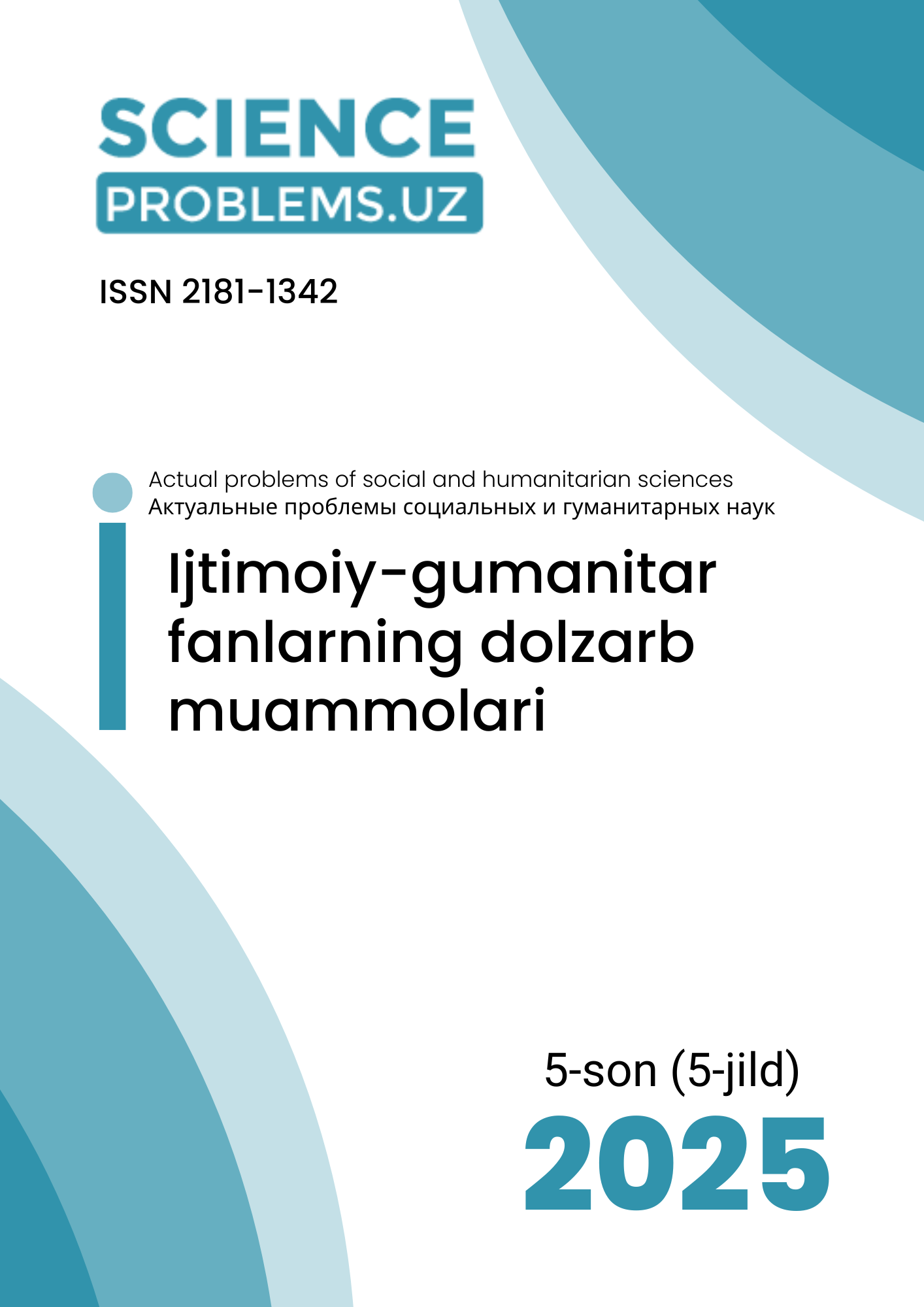SOCIAL SIGNIFICANCE OF CULTURAL, SCIENTIFIC AND TECHNICAL RELATIONS BETWEEN UZBEKISTAN AND SOUTH KOREA
DOI:
https://doi.org/10.47390/SPR1342V5I5Y2025N32Keywords:
scientific and technical, cooperation, KOICA, nuclear energy, sister city, Seoul, historical, artistic, archaeological instituteAbstract
The article analyzes the cultural, scientific and technical relations between Uzbekistan and South Korea in the years after independence. The article also highlights the processes of bilateral scientific and cultural cooperation between the Republic of Uzbekistan and the Republic of Korea, issues of cooperation with research institutions and higher education institutions.
References
1. Халқ сўзи // 1997 йил 4 сентябр.
2. Тошкент оқшоми // 1998 йил 5 сентябр.
3. Халқ сўзи // 1994 йил 28 май
4. Халқ сўзи // 1997 йил 4 сентябр
5. Киргизбаев А.К. Ўзбекистон Республикасининг Осиё мамлакатлари билан xалқаро ҳамкорлиги // докторлик илмий даражасини олиш учун ёзилган диссертацияю - Т.: 2004. - Б -245.
6. Normatova D. E. The Emergence of Philosophy in Ancient Society //Miasto Przyszłości. – 2023. – Т. 43. – С. 478-483.
7. Usmonov Q. O’zbekiston tarixi. -T.: O’qituvchi, 2012. -B-222
8. Normatova D. E. Attitudes Towards Moral Heritage In The History Of Central Asia //Oriental Journal Of Social Sciences. – 2021. – С. 11-16.
9. Киргизбаев А.К. Ўзбекистон Республикасининг Осиё мамлакатлари билан xалқаро ҳамкорлиги // докторлик илмий даражасини олиш учун ёзилган диссертацияю - Т.: 2004. -Б. 293.
10. Халқ сўзи // 2002 йил 30 январ.
11. O‘zbekiston Respublikasi tashqi ishlar vazirligi qoshidagi diplomatik korpusga xizmat ko`rsatish byurosi saytidan. 29 noyabr 2017-yil.








